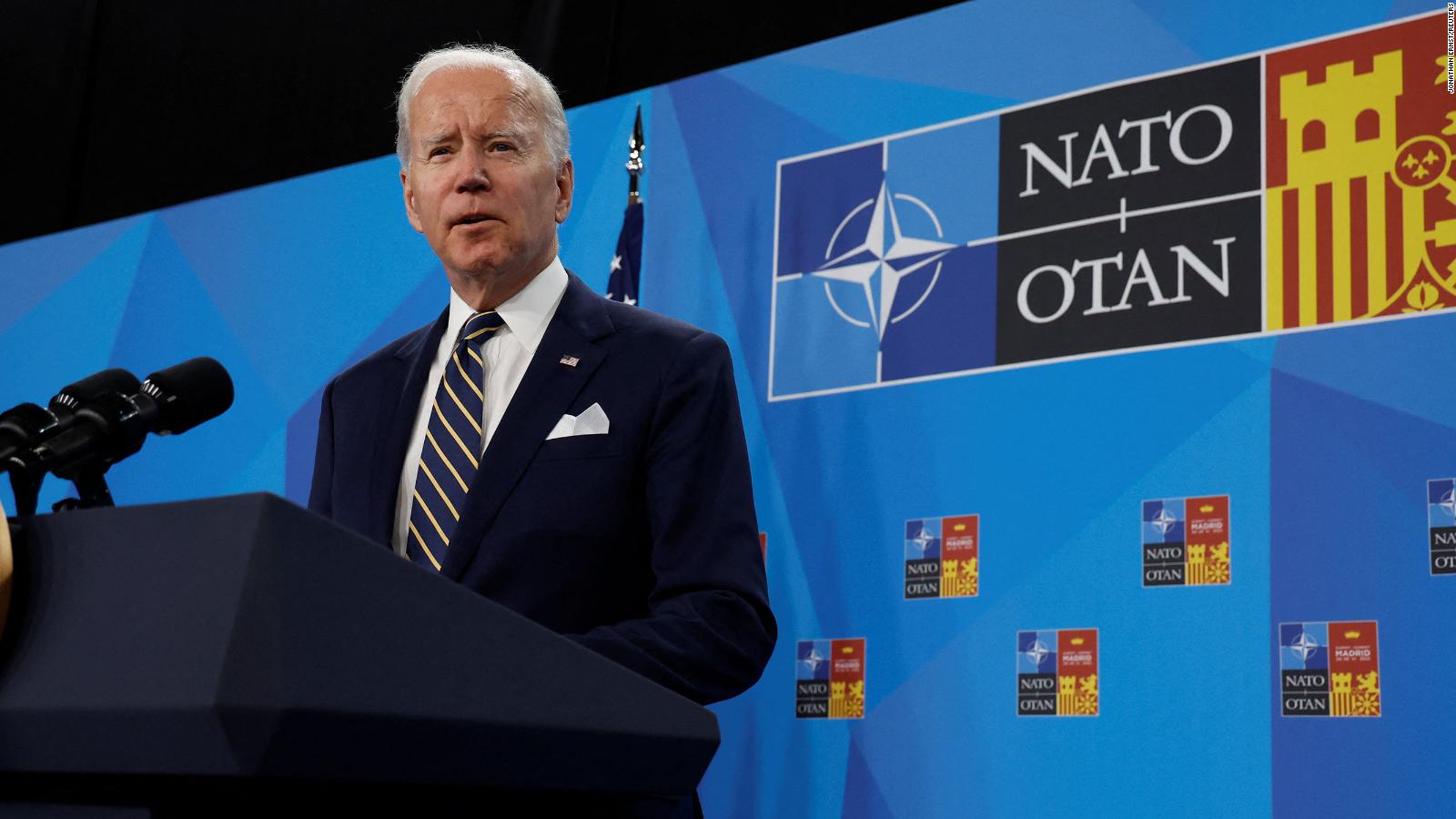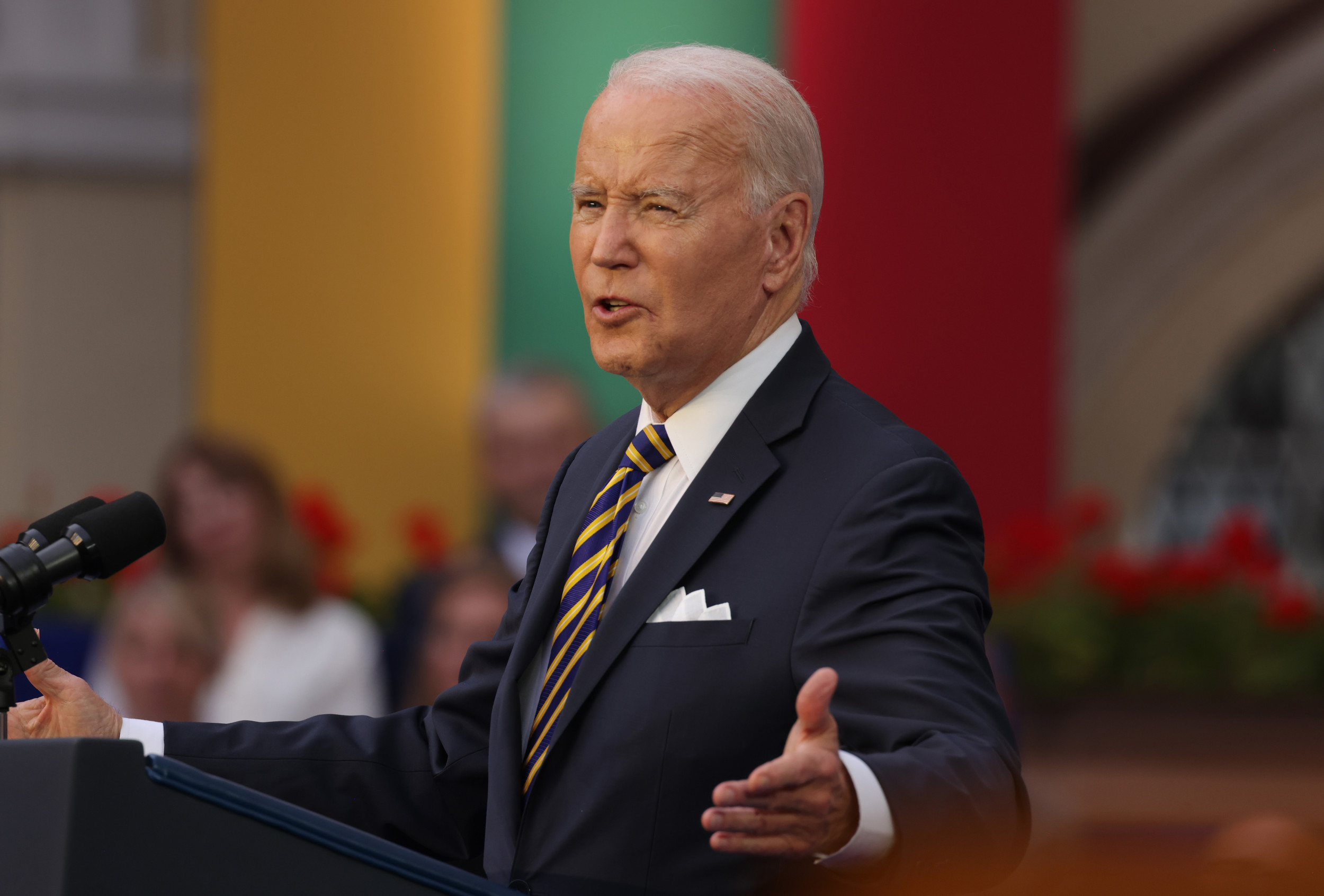Biden’s Address to NATO

Biden nato speech – In his address to NATO, President Biden emphasized the importance of transatlantic cooperation in facing global challenges. He called for a united front against Russia’s aggression in Ukraine and reaffirmed NATO’s commitment to collective defense.
In a resounding speech delivered at the Mellon Auditorium , President Biden emphasized the unwavering commitment of the United States to NATO. Amidst the escalating tensions in Europe, his words resonated with strength and determination, reaffirming the alliance’s unity and resolve.
Key Points
Biden’s key points included:
- Condemnation of Russia’s invasion of Ukraine and its violation of international law.
- Reiteration of NATO’s Article 5 commitment to collective defense.
- Emphasis on the need for increased defense spending and modernization.
- Call for a more inclusive and diverse NATO.
- Recognition of the importance of partnerships with non-NATO countries.
Implications
Biden’s speech has several implications for NATO’s future strategy and unity:
- It strengthens the alliance’s resolve to deter and defend against Russian aggression.
- It sets the stage for a more robust and capable NATO.
- It signals a shift towards a more global and inclusive NATO.
- It highlights the importance of transatlantic cooperation in addressing global challenges.
Analysis of Biden’s Rhetoric and Messaging

Biden’s address to NATO employed a range of rhetorical strategies to convey his message and persuade his audience. His use of language, tone, and body language was carefully crafted to resonate with the specific target audience and achieve the desired impact.
Target Audience
Biden’s speech was primarily addressed to the leaders and representatives of NATO member states. These individuals are responsible for shaping the policies and actions of their respective countries, and they play a crucial role in determining the future of the alliance. Biden’s messaging was tailored to appeal to their interests and concerns, emphasizing the importance of unity, collective security, and the shared values that bind the NATO alliance together.
Use of Language
Biden’s language was clear, concise, and persuasive. He used simple and direct language to convey complex ideas, making his speech accessible to a wide audience. He also employed vivid imagery and anecdotes to illustrate his points and connect with his listeners on an emotional level.
Tone and Body Language
Biden’s tone was solemn and determined, reflecting the gravity of the challenges facing NATO. He conveyed a sense of urgency and determination, while also expressing confidence in the alliance’s ability to overcome these challenges. His body language was open and engaging, indicating his willingness to listen to the concerns of others and to work together to find solutions.
Effectiveness, Biden nato speech
Biden’s speech was widely praised for its effectiveness in conveying his message and persuading his audience. He successfully rallied the NATO allies to reaffirm their commitment to the alliance and to work together to address the challenges facing them. The speech was also well-received by the public, who appreciated Biden’s clear and direct language and his strong commitment to NATO.
Comparisons with Previous NATO Speeches: Biden Nato Speech

President Biden’s speech to NATO was a significant moment in the alliance’s history. It was the first time a US president had addressed the alliance since the Russian invasion of Ukraine, and it came at a time when NATO is facing its greatest challenge in decades.
Biden’s speech was notable for its strong language and its clear commitment to NATO’s collective defense. He warned that “an attack on one is an attack on all” and that the United States would “defend every inch of NATO territory with the full force of our military power.” He also called on NATO members to increase their defense spending and to be prepared to “meet the threats of tomorrow.”
Biden’s speech was similar to previous speeches given by other world leaders, such as former US presidents and NATO Secretary Generals. Like these leaders, Biden emphasized the importance of NATO’s collective defense and called on members to increase their defense spending. However, Biden’s speech was also unique in several ways.
Historical Context
Biden’s speech was delivered at a time when NATO is facing its greatest challenge in decades. The Russian invasion of Ukraine has raised serious questions about the alliance’s ability to deter and defend against aggression. Biden’s speech was an attempt to reassure NATO members that the United States remains committed to the alliance and that it is prepared to defend every inch of NATO territory.
Biden’s speech was also notable for its focus on the future of NATO. He called on members to “adapt to the threats of tomorrow” and to invest in new technologies and capabilities. This focus on the future is a reflection of the fact that NATO is facing a number of new challenges, including the rise of China and the proliferation of nuclear weapons.
Rhetorical Analysis
Biden’s speech was a powerful and persuasive piece of rhetoric. He used strong language and clear imagery to convey his message. He also used repetition and parallelism to create a sense of urgency and momentum.
For example, Biden repeated the phrase “an attack on one is an attack on all” three times in his speech. This repetition helped to emphasize the importance of NATO’s collective defense and to create a sense of solidarity among the members.
Biden also used parallelism to create a sense of urgency and momentum. For example, he said, “We must be prepared to meet the threats of tomorrow. We must invest in new technologies and capabilities. We must strengthen our partnerships and alliances.” This parallelism helped to create a sense of urgency and to motivate the members to take action.
Strategic Implications
Biden’s speech has a number of strategic implications. First, it sends a clear message to Russia that the United States is committed to NATO’s collective defense and that it is prepared to defend every inch of NATO territory.
Second, the speech reassures NATO members that the United States remains committed to the alliance and that it is prepared to meet the threats of tomorrow. This reassurance is important at a time when NATO is facing a number of new challenges.
Third, the speech calls on NATO members to increase their defense spending and to invest in new technologies and capabilities. This call is a reflection of the fact that NATO is facing a number of new challenges, including the rise of China and the proliferation of nuclear weapons.
Biden’s speech is a significant moment in NATO’s history. It sends a clear message to Russia that the United States is committed to NATO’s collective defense and that it is prepared to defend every inch of NATO territory. It also reassures NATO members that the United States remains committed to the alliance and that it is prepared to meet the threats of tomorrow.
Biden’s speech at the NATO summit resonated deeply with global leaders, reaffirming the unwavering commitment to transatlantic security. Amidst the momentous declarations, a pivotal moment occurred when ABC News anchor George Stephanopoulos posed a poignant question that illuminated the profound implications of the gathering.
Stephanopoulos’s query ignited a dialogue that shaped the narrative of the summit, underscoring the enduring significance of the NATO alliance in an increasingly complex geopolitical landscape.